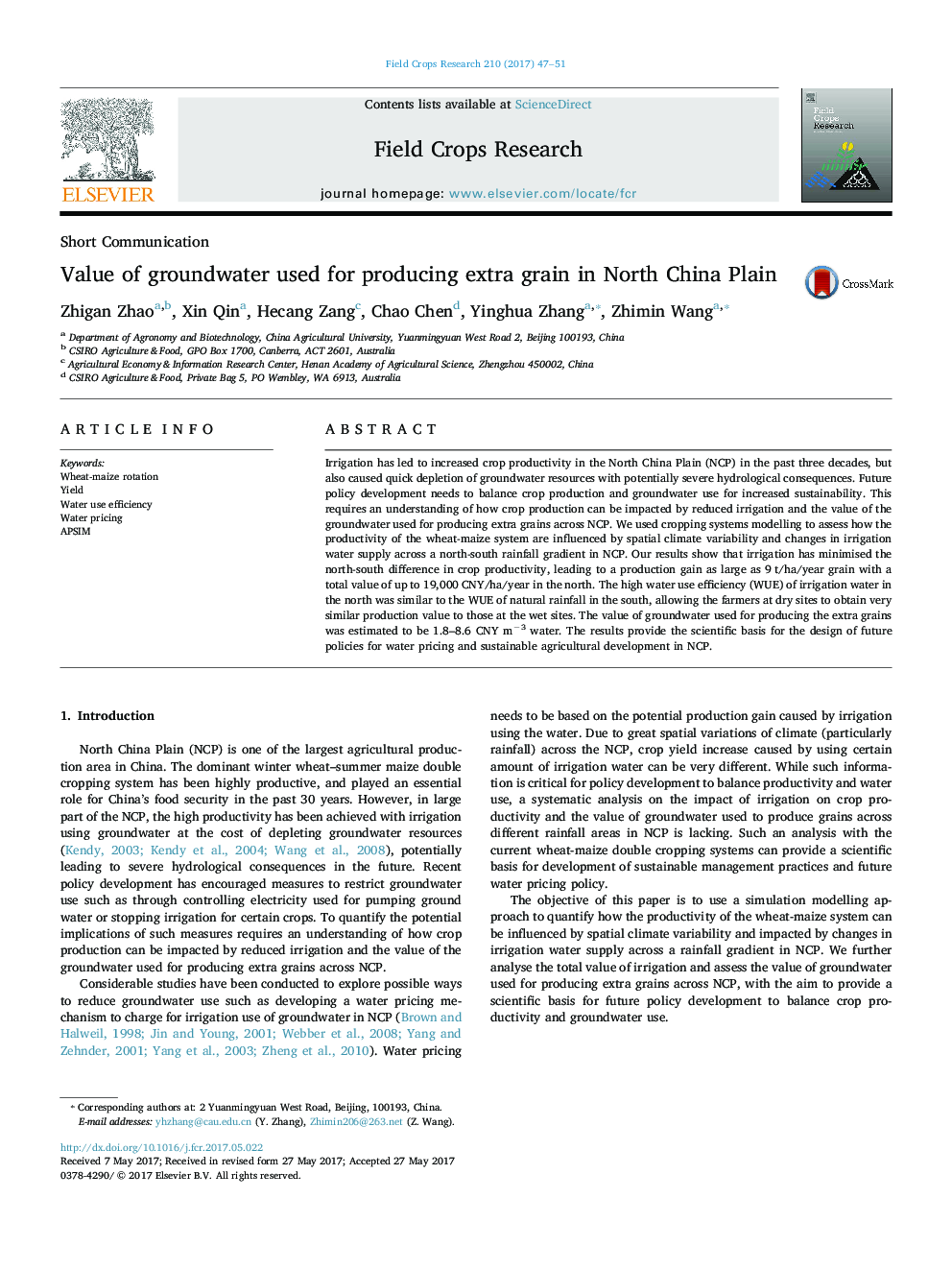| Article ID | Journal | Published Year | Pages | File Type |
|---|---|---|---|---|
| 5761448 | Field Crops Research | 2017 | 5 Pages |
Abstract
Irrigation has led to increased crop productivity in the North China Plain (NCP) in the past three decades, but also caused quick depletion of groundwater resources with potentially severe hydrological consequences. Future policy development needs to balance crop production and groundwater use for increased sustainability. This requires an understanding of how crop production can be impacted by reduced irrigation and the value of the groundwater used for producing extra grains across NCP. We used cropping systems modelling to assess how the productivity of the wheat-maize system are influenced by spatial climate variability and changes in irrigation water supply across a north-south rainfall gradient in NCP. Our results show that irrigation has minimised the north-south difference in crop productivity, leading to a production gain as large as 9Â t/ha/year grain with a total value of up to 19,000 CNY/ha/year in the north. The high water use efficiency (WUE) of irrigation water in the north was similar to the WUE of natural rainfall in the south, allowing the farmers at dry sites to obtain very similar production value to those at the wet sites. The value of groundwater used for producing the extra grains was estimated to be 1.8-8.6 CNY mâ3 water. The results provide the scientific basis for the design of future policies for water pricing and sustainable agricultural development in NCP.
Related Topics
Life Sciences
Agricultural and Biological Sciences
Agronomy and Crop Science
Authors
Zhigan Zhao, Xin Qin, Hecang Zang, Chao Chen, Yinghua Zhang, Zhimin Wang,
